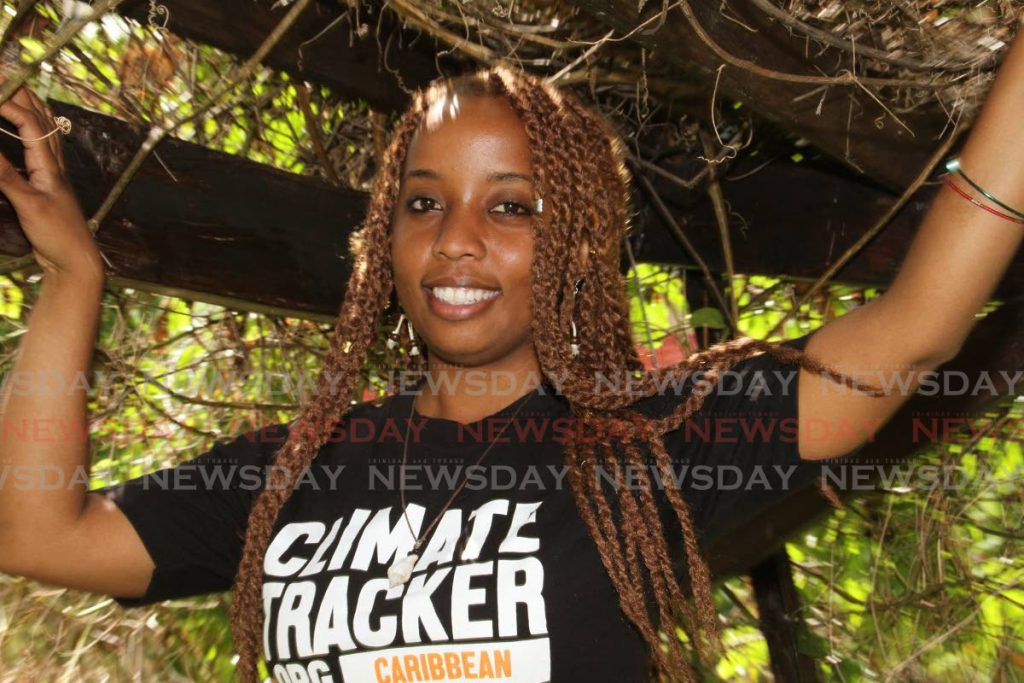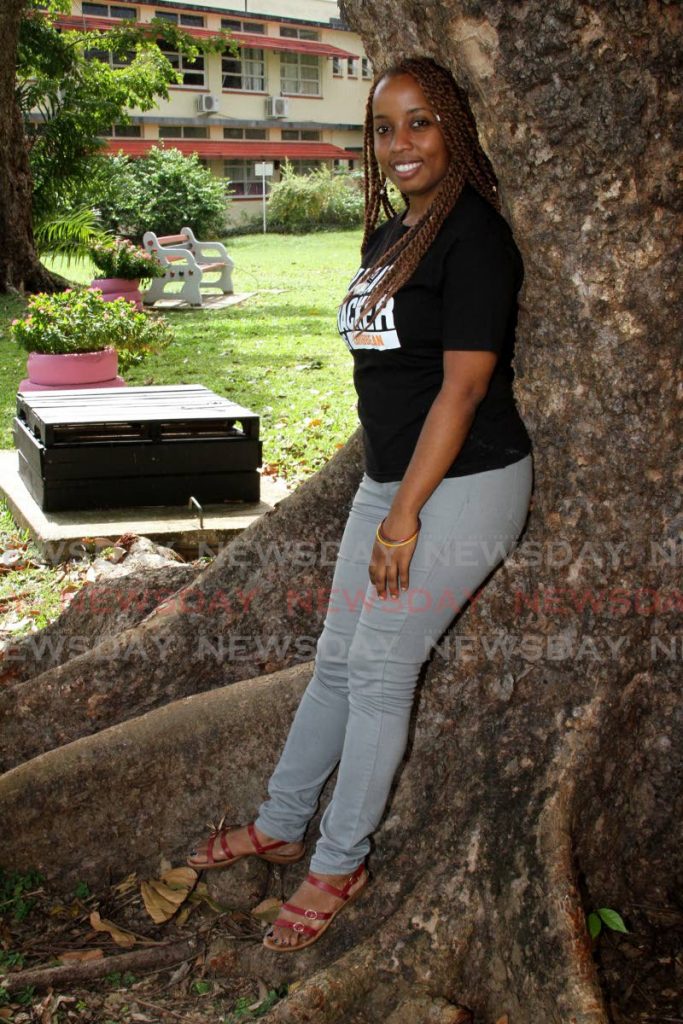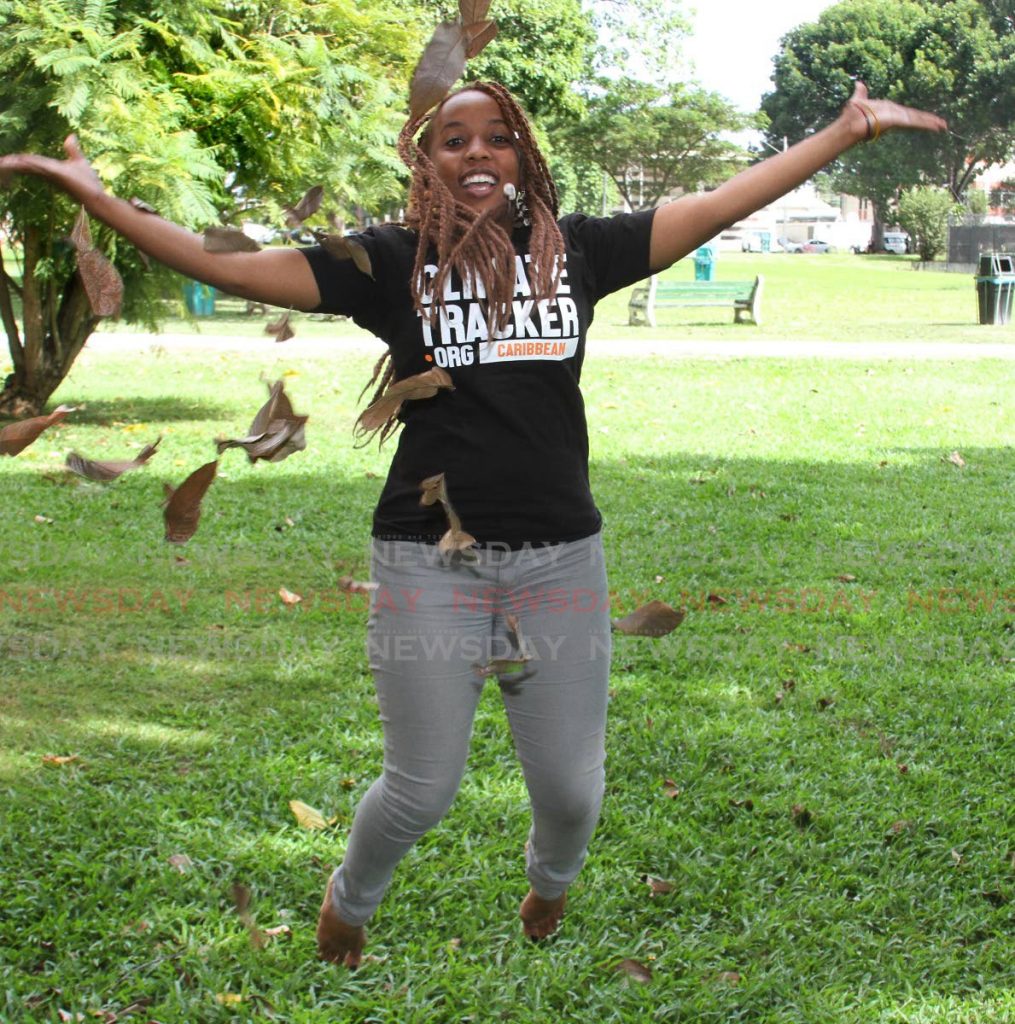Dizzanne Billy - Tracking climate change

Dizzanne Billy, budding climate activist and creative director at Paradox Studios, wants to help ensure people properly understand climate change and why it needs to be addressed.
Working with Climate Tracker, an international climate-change journalism advocacy group, she has written blog posts and articles on it with that aim.
Billy, 29, who hopes that more young people would get involved in activism, shared with WMN how she began climate activism and her thoughts on the global climate crisis.
"One day in 2014 I was looking for opportunities to do journalism internationally, because of my communications work in NGOs, and I came across Climate Tracker. They were giving the opportunity to attend a 2014 climate change conference in Peru."
Her membership of the Caribbean Youth Environment Network in TT, an environmental NGO, helped her understanding of climate change. She volunteered as the group's marketing officer from 2013 and was president from 2015-2017. She credits the group's environmental awareness and outreach activities for developing her environmental consciousness.
She said while she was growing up in Tunapuna and making life plans, this was nowhere on her list. At St Joseph's Convent, St Joseph, she wanted to study languages, but her parents influenced her to do business. Her desire for languages was rooted in her dream of travelling and connecting to other cultures. In sixth form, she also did sociology, which rekindled her interest in people and culture.

At the University of the West Indies, St Augustine, she completed a BSc in management studies and international relations (IR), then an MSc in global studies. Her MSc thesis focused on environmental governance and its effectiveness on the biodiversity agenda.
It was understanding the complexities of the climate crisis that pushed her to take up Climate Tracker's 2014 challenge to win a spot at the Peru conference.
"IR is very multidisciplinary, with aspects about society, economics, development, and the environment. It incorporates so much of what is required for a proper functioning society and I believe that the environment is an integral part of a functioning economy and society."
From May-October 2014 she wrote climate-related articles and made the shortlist of 15, out of thousands of applicants. But missed a spot in the top ten who went on to witness and cover the Peru climate negotiations. But she persevered.
"I didn't let not being selected get me down. I wanted to do this Climate Tracker because I had volunteered in environmental groups for so long, and it was something that I was passionate about." She reapplied in 2015 – and was successful.
Travelling to Paris with Climate Tracker, she reported on the events of the 2015 Paris climate negotiations.
"I was the first person that Climate Tracker had ever chosen from the Caribbean and as it stands, I am the only Caribbean person they've ever selected.
"I got the chance to meet with climate negotiators from all around the world and decision-makers from small island states in the Caribbean and the Pacific.
"It was a gruelling process during the two weeks covering the conference because I had to write around two to three articles every day. But it was fun and I met a lot of people who are still very close friends of mine."
Since covering the 2015 Paris climate negotiations, her profile has expanded.

"At the start of 2016, CT took sort of a strategic change in leadership and they decided to have 'hubs' around the world, and the Caribbean is one of the regions that they wanted to have a hub in."
In 2016 she became head of the group's Caribbean hub and also covered the 2019 climate global climate negotiations in Spain. Representing Climate Tracker, she participated in the 2017 International Water Association Development Congress in Argentina and the 2019 Strategic Dialogue on Women's Human Rights and Climate Justice in Thailand. She travelled to Barbados in 2018 and Jamaica in 2019 for a Commonwealth conference on Understanding the Intersection between Gender and Climate Change.
In November 2019 she was hired as Climate Tracker's global communications manager. It's given her a wider perspective on the local situation.
"It's not going to come off easy for everyone to swallow, but our society is very spoilt." Everyone knows that, as she says, "We have been historically been and continue to be very dependent on fossil fuels." And while TT strives for "developed country" status, she says it has been lost in translation that those countries are investing in alternative energy and divesting from fossil fuels.
"The oil and gas sector have helped us develop (in) a different way from other Caribbean countries. We need to realise we need to move away from a heavy dependence on oil and gas because that is not the future. We don't see the importance of things like alternative energy, energy efficiency, conservation and preservation of the environment."
She applauded smaller Caribbean islands which have taken a tougher stance on climate change, which affects their livelihoods.
She notes that simple things such as diet, reducing waste and smarter energy use can all be done individually to reduce human impact on the climate. As a vegetarian since 2010, she hopes to lead by example and made the transition to a vegan lifestyle in 2016. "One of the greatest impacts we are having on climate change is our food choices, and for that reason I became vegan."
Eating meat has an impact because carbon monoxide released from the rearing of animals is one of the most abundant greenhouse gases in the atmosphere. Greenhouse gases are responsible for trapping ultraviolet rays in the atmosphere, which leads to warming of the earth.
She is calling on young people to become more involved, given the risk climate change presents to future generations. "I believe that young people are more aware of climate change because we are being directly affected. I read something recently that said the older generation will die because of old age, but a lot of young people will die from climate change."
This is being linked to effects of climate change like reduced environmental quality, natural disasters and the spread of disease.
As climate change warms the earth this can act as an incubator to diseases like Malaria and Zika. The World Health Organisation estimated that an increase in global temperatures between two and three degrees Celsius can increase the number of people at risk of malaria by around three and five per cent.
"I would encourage more young people to get involved in climate activism. There are a lot of opportunities out there for us. You just have to actually want it, actively pursue it and not give up."
Looking forward, she is determined to continue her mission to leave the world a better place and is open to going wherever the road leads.
"Everything I put my hands to, I want to make sure that people are benefiting.
"There are a lot of ways we can help each other and if we make a conscious effort to help, then those ways and solutions open up to us."
She also plans to further her environmental studies. "I am looking for opportunities to do another degree, in international development and climate change. I also want to be able to guide companies and government agencies as it relates to environmental policies and climate change."
That way, she says her climate-change activism can become "more holistic."


Comments
"Dizzanne Billy – Tracking climate change"